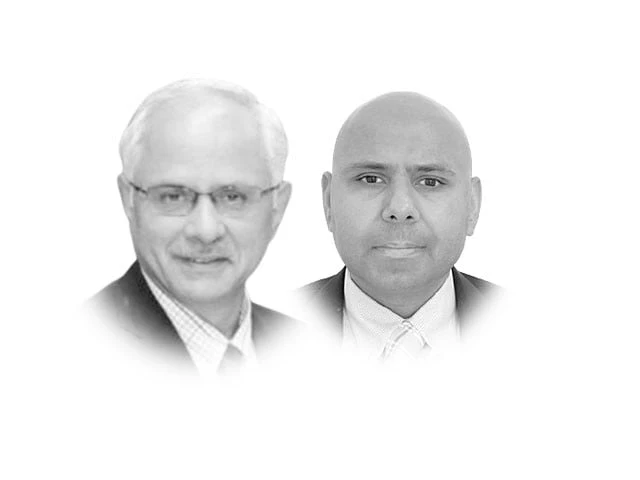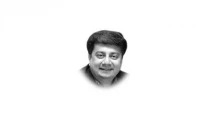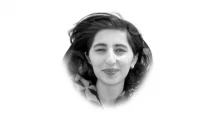Breaking barriers for blind students in our varsities
A robust public policy is the strong way to turn inclusion from promise into practice for blind students.

We don't want special treatment. We just want equal access.' This plea framed a focus group organised by Vision Without Barriers (VWB) in Lahore, where visually impaired students, educators and advocates mapped both obstacles and opportunities for inclusion across Pakistan's universities.
The first challenge identified is the digital divide in classrooms. Accessing course content has been viewed as a struggle. Reading materials are still shared as scanned PDFs or printed handouts — formats that screen readers often cannot interpret.
Math-heavy texts, untagged documents and PDF readers often crash or misread content. Some faculty still prohibit lecture recordings, depriving blind students of the opportunity to revisit complex ideas. "If only PDFs were made accessible, and if we were allowed to officially record lectures, half our problems would be solved," said one participant.
The participants said that the technology exists, but training does not. The gap is not always technological — it's educational. Tools like JAWS, NVDA and OCR software are available, but they are poorly understood by the teachers and students alike. "Technology training is more important than the technology itself," argued a student.
Dr Afaf Mansoor urged system-wide capacity-building, recalling her shift from segregated schooling to inclusive, peer-learning models: "We realised that segregated models failed our students once they entered mainstream society, so we shifted toward inclusion."
While technology enables independence, students reminded us that Braille remains foundational. Yet beyond secondary school, Braille textbooks are scarce. Braille printers and refreshable displays remain out of reach for most students. "Braille activates tactile literacy," said one, "and we shouldn't lose that."
Perhaps the most poignant story came from Dr Faisal Kamal, Pakistan's first blind postdoctoral scholar, who recounted being failed in an exam simply because a department-assigned scribe misunderstood the task. "I couldn't even challenge what he'd written," he recalled. This exemplifies why relying solely on human writers is flawed in Pakistan's education system.
Where policy is failing, students continue to persevere. Pakistan has policies - such as the HEC's 2021 Framework for the Inclusion of Persons with Disabilities — but these often remain aspirational. This dissonance between policy and practice reflects a larger societal problem. Social attitudes — especially concerning marriage, employment and capability — still marginalise the blind. "People may respect your education," said Dr Faisal, "but they won't readily consider you for marriage. That social rejection is painful."
Real change has come when institutions have listened and adapted. One student, Abubakar Yasin, shared how he and his peers requested to be merged into mainstream classes at GCU. Their appeal was accepted. "Dr Zaidi said we deserved inclusive education," he recalled, "and he made it happen."
Similarly, Ghulam Murtaza, who has led GCU's Centre for Special Students since 2003, oversaw the transformation from a poorly located upstairs room to a purpose-built, inclusive facility. Today, the Centre hosts over 300 students, supported by specialised staff and by computers and adaptive technology donated by the VWB.
The universality of these challenges was captured by Ms Rylie Robinson, a US-based writer and business student visiting Pakistan, who said, "Whether you hear a story from someone in Pakistan or the U.S., the hurdles are strikingly similar." Her testimony underscored the importance of cross-border knowledge-sharing in addressing the issues faced by blind students.
There were calls for building role models among the students. There were many stories of resilience in this respect. GCU alumnus Waqas Ahmed contributed to establishing one of the most successful charities, Pace2Life, despite his disabilities. Another, Nayar Ali, now runs a successful contracting business. Coaches and mentors have also played a vital role. The GCU's cricket coach for blind students, Muhammad Rahman, said it best: "If you want to work in this field, first be their friend. Then be their teacher."
Students and educators recommended the following steps for a roadmap for Pakistani universities: establish accessible e-libraries with audio, screen-reader compatible and tagged PDFs; provide structured tech training in screen readers and other learning tools; implement inclusive assessment systems with multiple options; support Braille production and tactile resources; create inclusive Learning Management Systems; and run awareness campaigns targeting faculty, staff and non-disabled students.
A robust public policy is the strong way to turn inclusion from promise into practice for blind students. The United Kingdom's Equality Act 2010 shows the power of such rules: its enforceable duties have boosted retention and graduation rates among visually impaired learners - proof that policy delivers progress.
But above all, universities must shift from a charity-based mindset to a rights-based commitment. Disability is not a personal failing - it is a mismatch between environment and need. Inclusion cannot be an afterthought. It must be embedded into the DNA of curriculum, pedagogy, campus life and institutional culture.
This article makes a call for two immediate actions: (i) HEC should update its disability framework and require full adoption by every public and private university by December 2025, and (ii) Universities should earmark at least one per cent of institutional budgets for accessibility upgrades and staff training.
Strong, enforceable policy turned the tide in the UK. With similar resolve, Pakistan can ensure that students who are blind move from the margins to the mainstream of higher education.
















COMMENTS
Comments are moderated and generally will be posted if they are on-topic and not abusive.
For more information, please see our Comments FAQ